Before you head into planning your wedding at full speed, you will need to set the budget. How much you can spend for your big day completely depends on what you and your partner are comfortable with. Budgeting for your wedding is a personal decision and it will always be a different case for every couple. But we also know that budgeting can be overwhelming and confusing especially if you’re not the type who is used to working with numbers. So, we’re here to help guide you! We asked the brides from our Bride and Breakfast Community on Facebook to share their wisest tips about computing and allocating your wedding budget, and we compiled them right here. Keep reading to learn what they are!
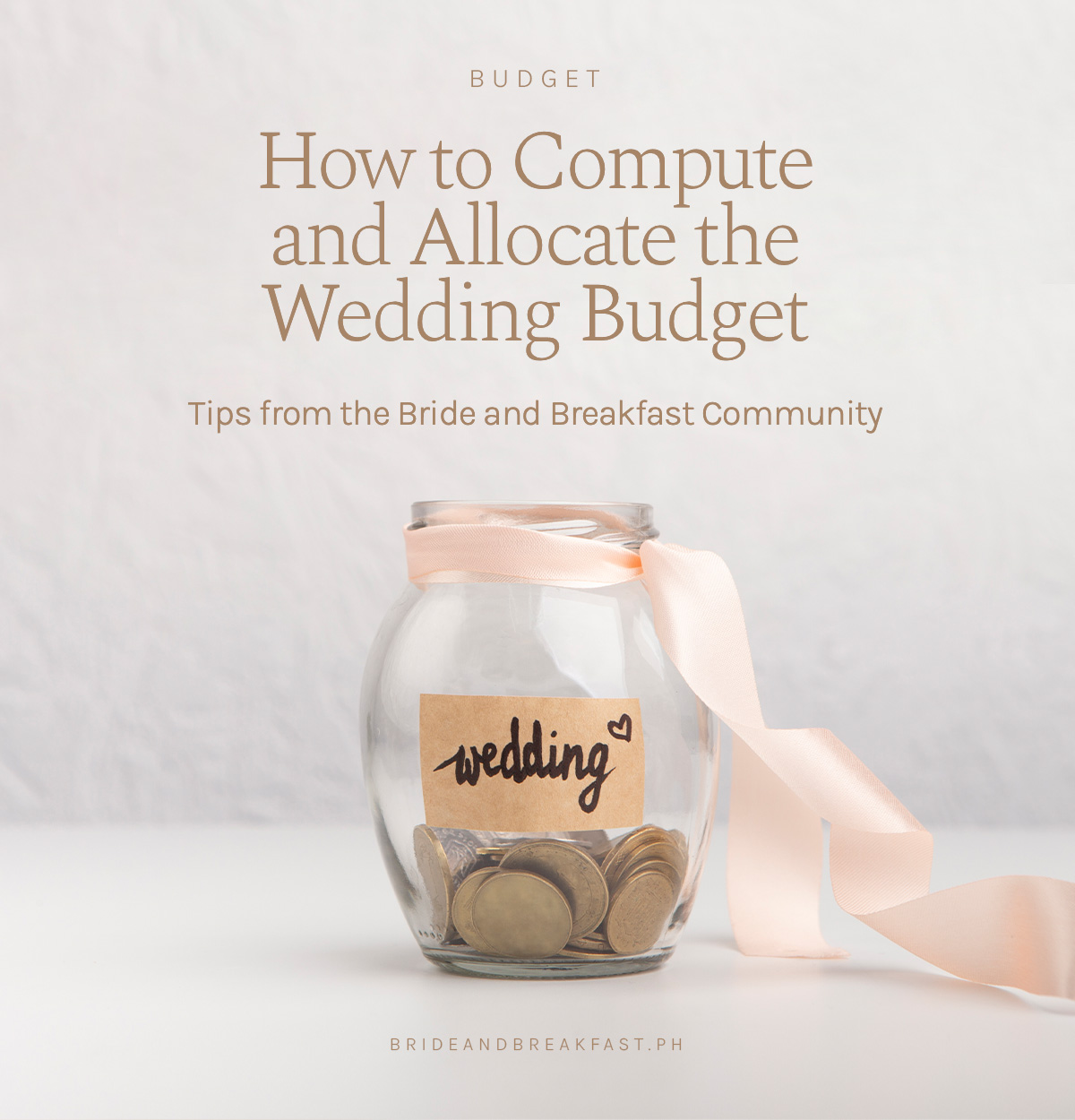

Be honest and open with each other about the realistic amount of money you can contribute to your wedding fund. Alyanna Angeles from our Bride and Breakfast Community says, “It doesn’t have to be the same amount.” This is a fair point because one of you may be able to contribute more, and there’s no shame in that! Once you’re married, your finances will also be conjugal property. So, consider funding your wedding as practice for married life! Another general tip you can take note of is saving at least 10% of your current income for your wedding fund. Based on the amount of money you can each contribute and set aside, you can then determine your total wedding budget.



Research about different suppliers and their packages. From there, you can base your budget allocation on industry rates. In some instances, you might need to consider if you’ll want to increase your budget to book a supplier who is your top choice or you can tighten the belt in other areas.
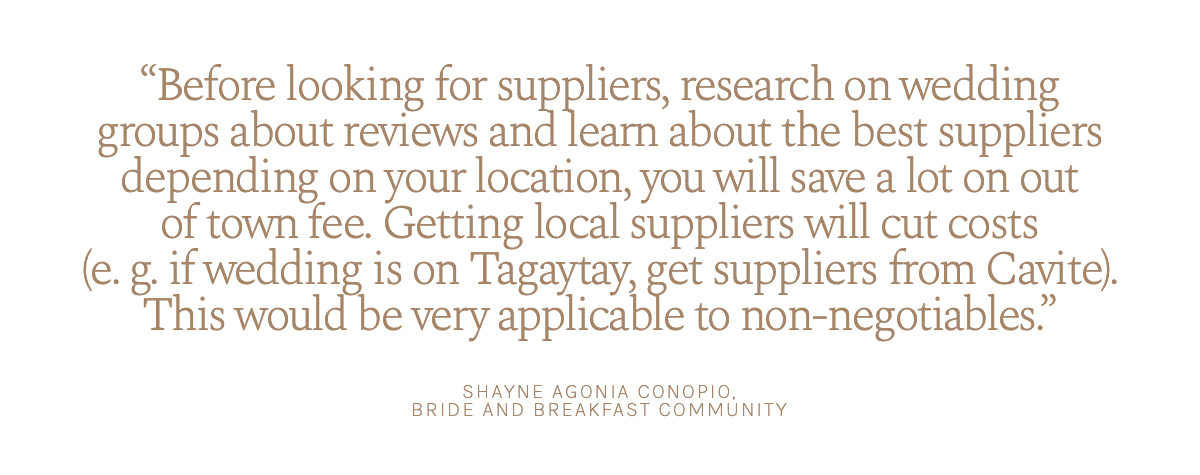
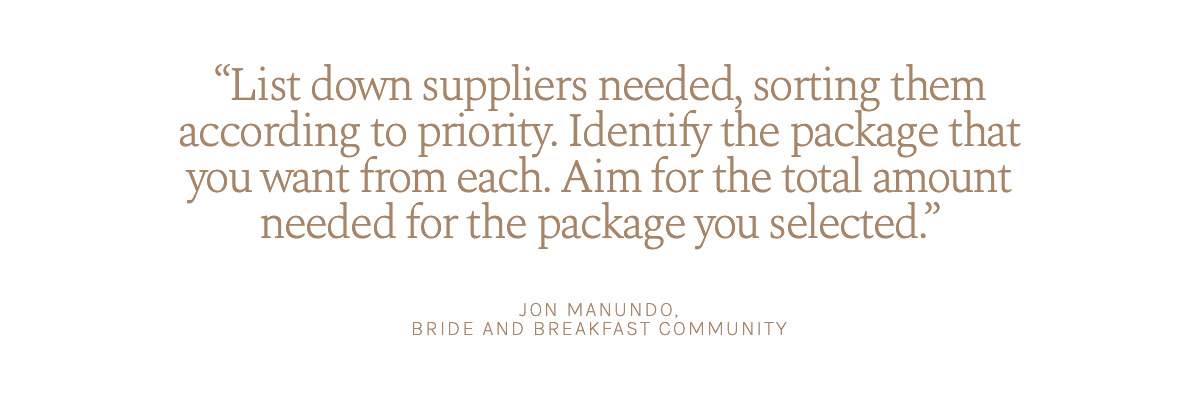

Consider allocating the biggest portion of your budget for the major suppliers or those that matter to you the most. Decide if that means spending more on food, venue, photographer, videographer, attire, etc. The supplier/s you choose to splurge on will take up majority of your budget, but you can always adjust and be more flexible with the rest of your items.
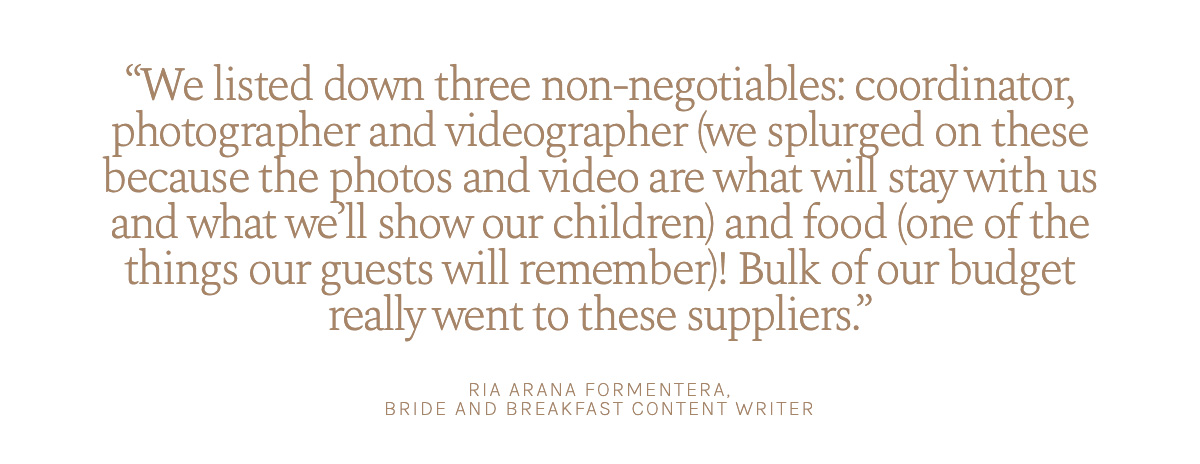
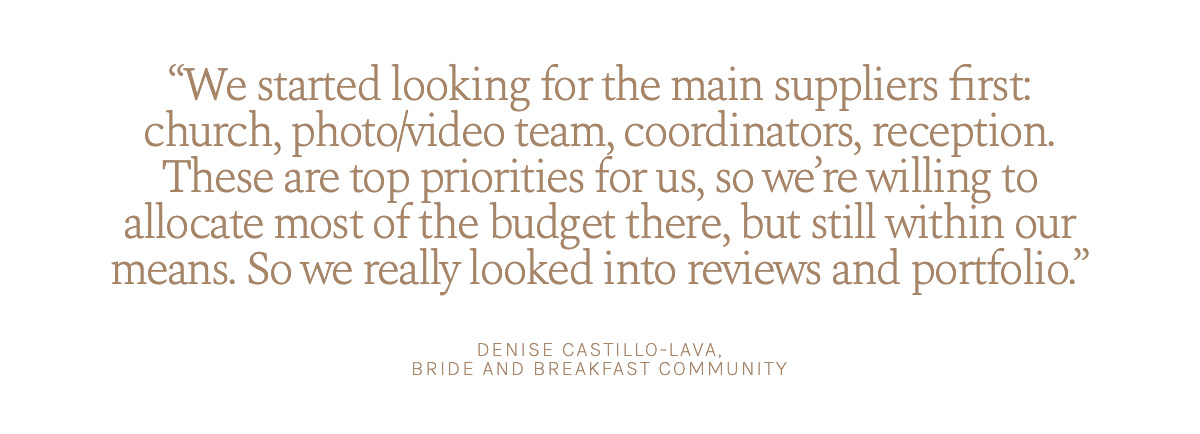

Excel sheets or Google sheets will be your best friend, and one of the most reliable planning tools. Always keep a record of how much money is going in and out so you don’t miss any payments, and you’re assured that you’re spending within your budget. You can divide your tables according to Supplier, Downpayment, and Balance to make the cash flow easier to track. Don’t forget to take into account monetary contributions coming from your parents and loved ones if these will be part of your wedding fund.



Though you have an allocated amount for your wedding, you can always find ways to save your hard-earned money. It’s not a bad idea to have extra funds, because you can set this aside for your future together or reallocate it for priority suppliers and anything additional for your ceremony or reception. Also, it wouldn’t hurt to ask your friends and relatives for favors. Some of your creative friends can sing for the program or help you design the invitations. They might even be willing to share their talents and efforts for you as a wedding gift!











